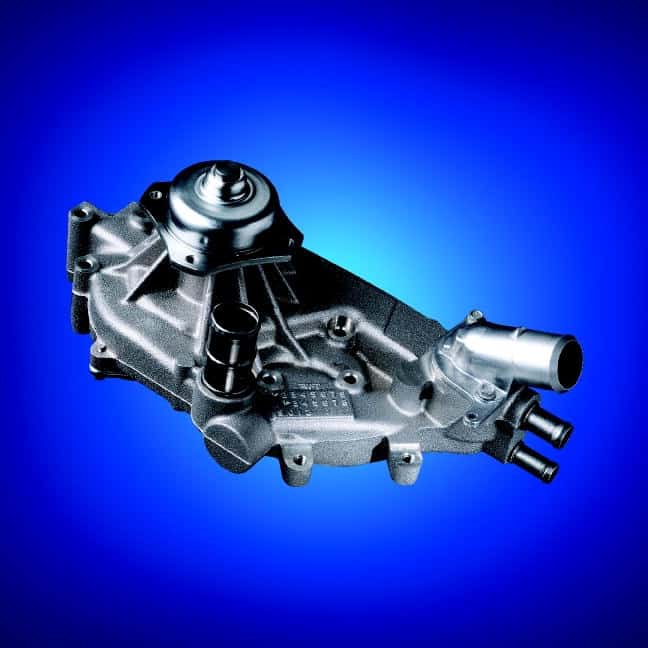The water pump, heart of the engine cooling system
The water pump is the heart of the cooling system. It circulates the coolant through the engine, radiator and heater core. These days, certain vehicles (like some SUVs, vans and most hybrids) often have more than one water pump, and the auxiliary pumps are usually run by electric motors and controlled by a computer.
The coolant picks up heat generated in the engine by flowing around the cylinders. It also flows through passages in the cylinder head around the very hot combustion chambers. Since an engine operates best within a certain temperature range, the thermostat stays closed to prevent the coolant from flowing out of the engine to the radiator until the coolant has reached a minimum temperature. After the thermostat opens, the coolant passes to the radiator, where it can give up its heat to the atmosphere. The radiator depends on air flowing through it to help it transfer the heat to the atmosphere. The coolant then returns to the engine, and the process begins again.
Things that can go wrong with your water pump
Usually, the pump itself is relatively inexpensive, but many times numerous other components must be removed in order to be able to change one. This, of course, adds time and cost to the repair.
When a water pump fails, it is usually due to a leak caused by a worn bearing. The bearing wears out, allowing the shaft to wobble, which damages the precision seal, resulting in leakage. A water pump bearing can also fail due to a lack of, or loss of lubrication. This can particularly be a problem on engines where the water pump is driven by the timing belt. Water pump seizure can cause the timing belt to suddenly break, and on many engines this can cause severe internal engine damage, such as bent valves and broken pistons.
A part inside the water pump, called the impeller, also sometimes fails or suffers corrosion. This can prevent the pump from circulating the engine coolant properly, which can lead to an engine overheating condition, or poor heater output inside the vehicle.
When having your mobile A/C system professionally serviced, insist on proper repair procedures and quality replacement parts. Insist on recovery and recycling so that refrigerant can be reused and not released into the atmosphere.
You can E-mail us at macsworldwide@macsw.org or visit http://bit.ly/cf7az8 to find a Mobile Air Conditioning Society repair shop in your area. Visit http://bit.ly/9FxwTh to find out more about your car’s mobile A/C and engine cooling system.
Many thanks to Mobile Air Conditioning Society member ACDELCO for the photo of a water pump used to illustrate this post.


Leave a Reply